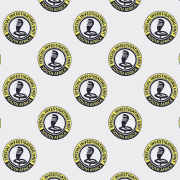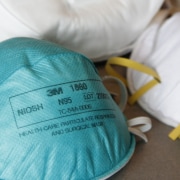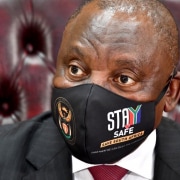|
Getting your Trinity Audio player ready...
|
By Thato Mahlangu
South Africans have witnessed in recent months of the Covid-19 pandemic how our procurement policies and laws can create opportunity for corrupt people, including government officials, to steal from the state’s purse.
An obvious consequence of this is that the looting hinders the implementation of essential programmes designed to eradicate poverty. In an emergency situation like the current pandemic, this could become a matter of life and death. The media is brimming with accounts of public servants and representatives alike disregarding these policies. Many headlines point to the looting of funds meant for the provision of vital, life-saving personal protection equipment (PPE) such as sanitisers, surgical gloves and masks.
Dr Bennie Lekubu, senior lecturer at Unisa’s Law College, told Corruption Watch (CW) that government’s relaxation of existing procurement policies earlier this year has brought about the rampant looting of public funds.
The relaxed emergency public procurement measures were announced in March, at the beginning of the country’s national state of disaster. Under these circumstances, the Disaster Management Act would enable the national executive to instruct how certain areas of government will operate, in the context of the emergency in place.
The pandemic necessitated massive procurement drives for PPE that would be used by deployees in the heavily burdened health and law enforcement sectors, among other essential services. “Government took a gamble … which is now having a serious and negative impact on the healthcare system and the economy,” said Lekubu.
Discord, lack of coordination and communication, and poor planning and monitoring has resulted in too many cooks in the kitchen and insufficient control mechanisms. Furthermore, the emergency procurement efforts occur in an already-weakened procurement environment, as recently highlighted by Auditor-General Kimi Makwetu in his first dedicated Covid-19 report.
When cracks started to show in PPE procurement, preliminary investigations revealed that some of these much-needed products were not going where they were most needed.
Allegations of wasteful expenditure, fraud and corruption emerged across the different levels of government. The Special Investigating Unit (SIU) is probing over 600 companies that have been awarded PPE contracts, valued at R5-billion. The SIU itself has not escaped scandal, as a recent media report revealed alleged tender irregularities by its own senior staff.
New bill needs further tightening
Although the draft Public Procurement bill, which is under review, is aimed in principle at advancing economic opportunities for those who have for long been left out of the active economy, the PPE procurement scandals have shown us that circumstances for that will probably not be realised soon, unless something changes.
Lekubu didn’t think that the country’s procurement legislation in terms of preventing corruption is weak. In fact, it is government’s lack of urgency when it comes to implementation that requires attention.
“Policies do exist, we acknowledge that, but the challenge is often with the procurement office. At times, procurement officers manipulate and override the policies.
“This is done to misrepresent or share some information with bidders colluding with corrupt officers. There are provisions which were included in Chapter 3 of the bill, in the Public Service Regulations and the South African Constitution. These provisions talk about issues related to ethical conduct, how state resources must be safeguarded, quality of services which must be procured to the state, and how public and procurement officials must conduct themselves.”
He added that some of these public officials have mastered the manipulation of these policies.
“The reason why people commit corruption is not because policies aren’t adequate, but more an intentional ignorance or manipulation of regulations for self-benefit. You find a certain institution, company and high profile people being fingered in these corrupt activities. Who enables that, who stands to benefit and at what cost?”
Dr Omphemetse Sibanda, law professor and executive dean of the faculty of management and law at the University of Limpopo, told CW that he agrees that the bill as it currently stands has loopholes that may be abused for corrupt practices.
“It is as if the issue of corruption in the procurement process was an afterthought by the drafters of the bill. This, in my view, creates the impression or supports the view that our procurement policies and procedures do not treat corruption concerns as critical.”
CW’s position on the bill is that it may undermine the recently proposed move to create a single regulatory body, the Public Procurement Regulator (PPR). The organisation argues that the National Treasury, provincial treasuries and PPR would be empowered in separate capacities. This could result in these bodies implementing binding and non-binding instructions and practice notes that apply in their different contexts but do not necessarily address a common problem.
“To avoid proliferation and confusion, the bill must provide clear guidance on the status of each of these instructions as well as their publication and accessibility requirement,” the organisation stated in a submission to National Treasury in June.
Transparent procurement process vital
Lekubu concurred with the CW submission in relation to the approach the government has taken towards procuring certain products in response to the Covid-19 pandemic. The organisation has called for more transparency in emergency procurement.
“We submit that the Public Procurement Regulator should be tasked with creating and maintaining a consolidated list of all the procurement rules, including their legal status. This list should be regularly updated and easily accessible to all practitioners,” the organisation said, adding that failure to make these requirements public would make it difficult for civil society organisations like CW to effectively monitor the emergency procurement system.
Lekubu said even though the current anti-corruption framework was designed as a multi-faceted, control-based approach that is executed through legislation, supporting regulations, audit trails, anti-corruption structures, law enforcement agencies and public vigilance and reporting structures, amongst others, those in power are finding it easy to plunder the state purse.
Tough action against corrupt should accompany laws
Sibanda said the bill and other important policies must not be drafted in clinical isolation of the existing anti-corruption and other related legislation.
“Otherwise, this is an exercise in futility. Be that as it may, I still believe that bill is the best we have ever had in the procurement environment,” he said.
The government should exclude those who are convicted or accused of corruption from bidding for other contracts, Sibanda added. “Countries or regions that are serious about combating corruption do not hesitate to reference anti-corruption in procurement legislation and another normative framework.
“For example, the European Parliament and European Council are known to have explicitly, through legislation, held that a bidder who has been convicted of corruption shall be excluded from participation in a public contract. The bill’s reference to corruption in Clause 17(f) is inadequate because it relates only to officials in the procurement department: an officer should not commit or abet corrupt, fraudulent, collusive or coercive practices,” Sibanda explains.
He expects the bill, when passed and enacted into law, to make a clear statement that its objective is to include fostering a procurement environment free of corrupt practices.
“[But] PPE corruption in the country calls for a procurement system that not only ensures value for money in the use of public funds, as noted in clause 2(b)(ii), but also that ensures the eradication of corruption and other corrupt practices,” he said.






